Did you know that Japan is a multicultural society? Although many foreigners already live around us, not many Japanese realize it. How can art engage with these “invisible” foreigners? The Immigration Museum Tokyo has developed unique art practices with, and concerning, foreigners. Museum officials have invited guests experimenting in various forms of expression, and put together a lecture series in which guests discuss the possibilities for art in a multicultural society. If you are involved in support for foreign nationals or international exchange, or if you are interested in the relationship between art and society, we look forward to your attendance.
*Details for Lectures 5 will be posted online shortly.
Project direction: Yang Chunting
Project operation: Yeung Tinshui, Sanghae Kwon, Ito Mana
Hiroki Mochizuki is the editor of web magazine Nippon Fukuzatsu Kikou (“Japan’s complex journey”) and Shigeaki Iwai is an art project supervisor at the Immigration Museum Tokyo. In this session these two creatives involved in raising the visibility of foreigners in Japan talk about their vision for this visibility going forward.
Date/time: Saturday, July 27, 2019 13:30 – 16:00
Venue: Senju Campus, Tokyo University of the Arts
Capacity: 40 (first-come-first-served, priority given to people who have reserved in advance)
Fee: Free
[Speakers]
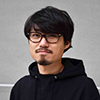
Hiroki Mochizuki
Editor of Nippon Fukuzatsu Kikou
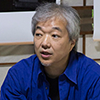
Shigeaki Iwai
Artist, supervisor at Immigration Museum Tokyo
This discussion starts from the point of view of an established group of foreign residents. Dialogue between sociologist Han and artist Lee focuses on the ethnic identity of Koreans (particularly North Koreans) living in Japan.
With particular reference to Han’s artistic activities, our guests re-examine the significance of self-expression by foreign residents.
Date/time: Sunday, July 28, 2019 13:30 – 16:00
Venue: Senju Campus, Tokyo University of the Arts
Capacity: 40 (first-come-first-served, priority given to people who have reserved in advance)
Fee: Free
[Speakers]
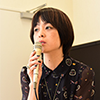
Han, Tong-hyon
Sociologist, Associate Professor at Japan Institute of the Moving Image
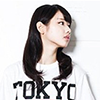
Lee Jong Ok
Artist
Many children with foreign roots struggle to find their place in Japanese society and find it difficult to forge an identity for themselves. Many demonstrate how they approach the conflicts they experience through various forms of expression such as the plastic arts, documentary filmmaking and media. We invite attendees to focus on young foreign residents through each of these practices, and deepen their understanding of a symbiotic multicultural society
Date/time: Saturday, September 14, 2019 13:30 – 16:30
Venue: Senju Campus, Tokyo University of the Arts
Capacity: 40 (first-come-first-served, priority given to people who have reserved in advance)
Fee: Free
[Speakers]
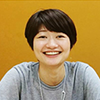
Asako Taki
Executive director of NPO Art Resources Development Association (ARDA)
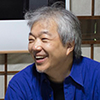
Shigeaki Iwai
Artist, supervisor at Immigration Museum Tokyo
[Screening]
“Journey to be continued”(67-minute video / 2017)
Directed by Shigeaki Iwai
(C) NPO Kani International Exchange Association
Kani City in Gifu Prefecture is home to many foreign workers and their families. The city runs support classes to help children from a foreign background to go on to high school. Featuring director Iwai’s unique artistic approach, this film is a record of his attempts to talk with young people attending these classes.
Around half of the people living in the giant housing complex Homi Danchi are foreigners, and most of those have roots in South America. Unique photographer Keisuke Nagoshi, who lived among them for three years, continuously documented his contact with them through his camera lens. In this event featuring visiting professor Kaku Nagashima from Tokyo University of the Arts as commentator, Nagoshi discusses the scenes and activities he witnessed in the foreign community of the housing complex. The event will also feature more in-depth discussion with South-American natives currently living in Homi Danchi. Inspired by Nagoshi’s photographs, this event explores the various stories and experiences of foreign residents of Japan through the unique perspective of the artist.
Date/time: Saturday, December 14, 2019 13:00 – 15:00
Venue: Senju Campus, Tokyo University of the Arts
Capacity:50 (no advance reservation necessary)
Fee: free
[Speakers]
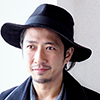
Keisuke Nagoshi
Photographer
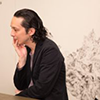
Kaku Nagashima
Dramaturg / Visiting Professor, Tokyo University of the Arts
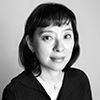
Sumiko Kumakura
Head of Graduate School of Global Arts/Professor, Tokyo University of the Arts
*To be held as part of the “Senju Art Path 2019” project created, researched and presented by students from the Department of Musical Creativity and the Environment/Creativity of Music and Sound, Graduate School, Tokyo University of the Arts
Theater director Akira Takayama began creating his tour performance “Tokyo School Excursion Project” in 2017. What makes this project so distinctive is that participants are shown around different neighborhoods in Tokyo not by Japanese people but by non-Japanese living in Japan, giving both non-Japanese and Japanese people a fresh experience of the city. In 2018 he created the “New School Excursion Project” focusing on the refugee issue. The “Kurd Version” of this new project entailed a cooking class and history tour in “Warabistan,”the city of Warabi in Saitama Prefecture, which is home to many of Japan’s Kurdish residents. Through conversation between Akira Takayama and Ali, who acted as guide for the “Kurd Version,” we follow the lives and memories of Kurdish people living in Japan.
Date/time: Thursday, March 12, 2020 19:00 – 21:00
Venue: Senju Campus, Tokyo University of the Arts
Capacity: 50 (first-come-first-served basis with priority given to those with prior reservations)
Admission: free
[Speakers]
 撮影:江森康之
撮影:江森康之
Akira Takayama
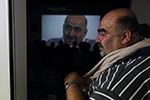 撮影:蓮沼昌宏
撮影:蓮沼昌宏
Ali Ayyildiz
Send an e-mail to info@aaa-senju.com with the subject line “Lecture” and include (1) your name, (2) the number of participants, (3) your preferred program (you may attend multiple lectures ), (4) contact details (telephone and e-mail address).
E-mail:info@aaa-senju.com
You can also apply online using the contact form. Please indicate the program you wish to attend in the Remarks column.
*If applicants exceed capacity, we will give priority to people who have applied for more than two lectures.
*Please set your devices to allow messages from info@aaa-senju.com
*Your personal information will be handled as strictly confidential, and used only to send you information from the organizer about this event.
Art Access Adachi: Downtown Senju-Connecting through Sound Art Office
Contact Form: Please contact via the contact form on the official website.
Tel: 03-6806-1740 (13:00 – 18:00 except Tuesday and Thursday)
E-Mail: info@aaa-senju.com
Tokyo University of the Arts, Senju Campus (1-25-1 Senju, Adachi-ku, Tokyo)
5-minute walk from Kitasenju Station (JR Joban Line, Tokyo Metro Chiyoda Line / Hibiya Line, Tobu Skytree Line, Tsukuba Express)
*No parking available. Please use public transportation.